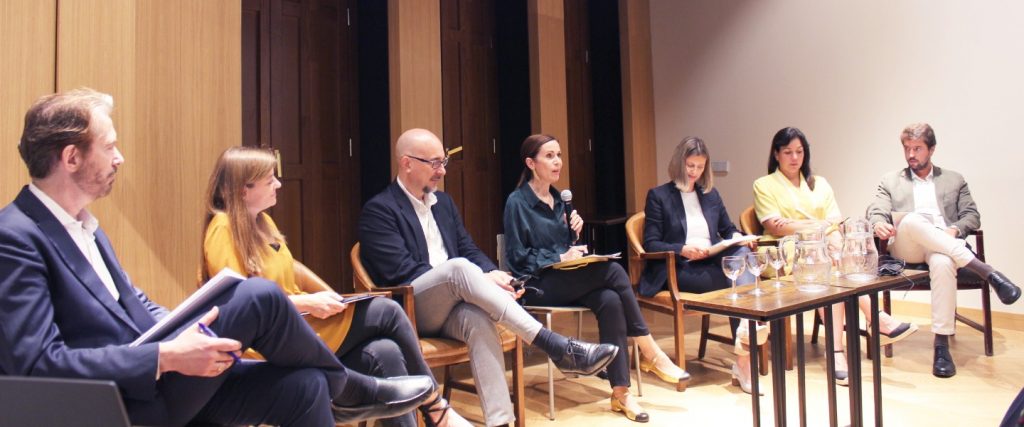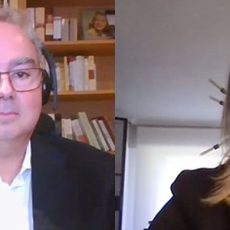
Six civil society entities – the European Association for Digital Transition (EADT), promoter of the initiative, joined by Save the Children, the ANAR Foundation, iCMedia, Dale Una Vuelta and UNICEF – with institutional support from the Spanish Data Protection Agency (AEPD) have presented a proposal for a state pact to protect minors on the Internet and social networks. The initiative forms part of the start of Spain’s presidency of the European Union and before the upcoming general elections on July 23rd, which will result in a new legislature.
The starting point of this initiative, the first of this importance having participation from the most representative organizations for protection of children, has been the shared concern about the risks faced by children and adolescents in these environments. Young people are using services designed for adults that can affect their socialisation and exacerbate possible mental health problems, such as anxiety and depression, in addition to facilitating violent situations like school bullying and sexual harassment.
Moreover, mobile devices have become an entryway to pornographic content, creating a trivialisation of sexual relations, early sexualisation and exposure to inappropriate content. Lastly, the signatories also warn about the massive collection of data from minors aimed at profiling them for sale to third parties for advertising purposes.
The proposed measures underscore the need to come to terms with the problem, train professionals to confront it, and develop current legislation so that all the actors involved accept their responsibility for a vulnerable population, that is, children and adolescents. The proposals involve various levels of the public administration.
Key measures of consensus for a state pact to protect minors
- Enforce that algorithms and automatic processing systems be audited by independent third parties and supervisory authorities in regard to the protection of privacy, absence of discriminatory biases, manipulation, etc. Likewise, as happens with medications, they must give clear and understandable information to adults: who the service is aimed at, who should not use it, what contraindications it has in special cases, how it should be used and with what limits, what to do in the case of problems, who has verified it works correctly, etc.
- Strengthen the supervisory capacity of the agencies responsible for application of the Digital Services Act (adopted by the EU in 2022) in regard to minors, such as the Spanish National Markets and Competition Commission (CNMC) and the EDPB (European Data Protection Board).
- Establish an accountability framework for managers responsible for video sharing platforms and content distributors who fail to comply with the obligation to verify age.
- Promote regulation in the Spanish autonomous regions to limit the use of mobile phones in schools and to adapt the use of technological devices in the classroom to age guidelines.
- Implement resources in primary care systems to detect, prevent and confront problematic consumption of the Internet, social networks and pornography by minors.
- Promote schools for parents to provide them with tools that can help them educate their children in responsible use of the Internet and social networks.
The document develops fifteen measures like these, starting points for consensus on which to work together beyond the differences between political parties and the different groups and stakeholders.
The state pact proposal is open to backing from companies, social entities and foundations, who can express their preliminary interest here, in addition to consulting the specific proposal.
So far, more than 70 civil society entities have joined, such as the Spanish Association of Foundations (AEF), Asufin, the Club Abierto de Editores (Clabe), the Audiovisual Council of Andalusia, the Audiovisual Council of the Valencian Community, the Fundación FAD Juventud, the Hermes Institute and the Atresmedia Foundation.
This initiative is complemented by the ‘Just a click away from helping them’ campaign, in which the EADT along with the ANAR Foundation, Atresmedia Foundation and the Spanish Data Protection Agency seek to encourage parents to take a more active role in the online activity of their children.




